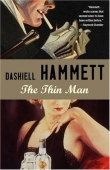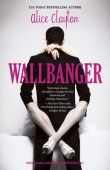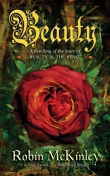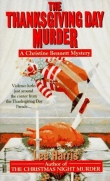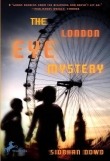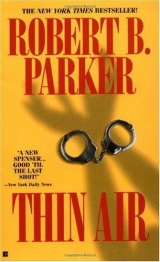
Текст книги "Thin Air"
Автор книги: Robert B. Parker
Жанр:
Крутой детектив
сообщить о нарушении
Текущая страница: 7 (всего у книги 14 страниц)
Chapter 17
Lucy's El Adobe is a very ordinary-looking restaurant in Hollywood, right across from the Paramount Gate. When we got there Samuelson was already in a booth drinking coffee and looking at nothing and seeing everything. He was a rangy guy with a square face and very little hair. He wore tinted glasses and his moustache was trimmed shorter since I'd seen him last. He nodded when he saw me come in and stood when he saw Susan. I introduced them.
"You're the one he went home to," Samuelson said.
"I believe I am," Susan said.
"Can't say I blame him," Samuelson said.
Susan ordered a frozen margarita, with salt. I glanced at her and she smiled serenely. Samuelson had more coffee and I ordered decaf. Samuelson looked disgusted.
The waitress brought the drinks, took our food orders, and went away.
"You ever hear from Jill Joyce?" Samuelson said.
"No. Vincent del Rio still around?"
"Like death and taxes," Samuelson said. "I never figured how you didn't irritate him."
"Same way I didn't irritate you," I said.
"You did irritate me," Samuelson said. "But the consequences aren't so serious."
The waitress brought the food. Samuelson had a taco salad, I had chicken fajitas. Susan had the combination special: chile rellenos, enchiladas, a beef burrito, refried beans, cheese, sour cream, guacamole. I stared at her.
Susan looked at her plate and said, "Yum."
"You going to be able to handle all that, little lady?" I said.
"I think so," Susan said. She grinned at me. "But thanks for asking, Peekaboo Boy."
"Why you asking about del Rio?" Samuelson said.
"I need a favor from him."
Samuelson said, "Good luck," and handed me a manila envelope from the seat beside him.
"Angela Richard," he said. "Hollywood Vice busted her twice, 1982, 1983. Sheriff's department got her once in '85. When the Sheriff's department got her they sent her out to detox in Pomona."
"Pomona?" I said.
Samuelson nodded.
"Busted her pimp, too," he said.
"That's unusual," I said. "LAPD or the Sheriff's guys?"
"Sheriff," Samuelson said. "I guess he hassled them while they were collaring her, so they hauled him in too."
"What's his name?"
"Elwood Pontevecchio," Samuelson said. "How many wops you know with a name like Elwood?"
"Anybody named Vaughn involved?"
"Nothing in the record," Samuelson said.
"Elwood do time?" I said.
Samuelson smiled at me.
"Sure he did," Samuelson said. "And it don't rain in Indianapolis in the summer time."
"Just asking," I said.
"Un huh," Samuelson said. "It's just make-work, you know it and I know it, and anybody ever worked Vice knows it. Sweep 'em up, process 'em, let 'em out. Pleases the righteous, and keeps a bunch of Vice Squad guys from getting into trouble someplace else. Why you interested in the hooker?"
"She's missing," I said. "Somewhere along the line she stopped being a hooker, changed her name, came east, and married a cop I know."
"And you're following up on a couple solicitation collars ten, twelve years ago? Out here?"
"Tells you how much I've got so far, doesn't it?"
Samuelson shrugged.
"Gotta start somewhere," he said.
"I take a ride out to Pomona, they going to be friendly about answering questions?"
"I'll give them a call," Samuelson said.
He paused as if the gesture embarrassed him. Then he spoke to Susan.
"Cop's wife, you know? I don't know him, but a cop is a cop."
Susan smiled at him.
"Certainly wouldn't want to do a favor for him." She nodded at me. "Would you?"
Samuelson grinned back at her. Susan could get a smile from a hammerhead shark.
"Peekaboo Boy?" Samuelson said. "He's so slick he doesn't need any favors."
Susan looked at me and the glint was there that I could never quite specify.
Chapter 18
Pomona is a thirty-mile ride east of LA, on route 10, along a corridor of low shopping malls and office parks with black glass windows and big air-conditioning units on the roof. I was alone. Susan had decided to sit by the pool at the hotel with a copy of a book by Alice Miller called The Drama of the Gifted Child. I didn't mind. I was used to being alone. In fact, I liked it, unless it was for too long and I started to miss her.
The place wasn't called Pomona Detox at all. Its real name was Pomona State Hospital for Alcohol and Drug Addiction. The director was a psychiatrist named Steven Ito, and he talked to me in his cluttered office overlooking the employees' parking lot.
"My name is Spenser," I said. "I'm a private detective from Boston and I'm trying to find a missing person named Lisa St. Claire, who was apparently treated here in the mid 1980s under the name Angela Richard."
"I got a call from LAPD about you," Ito said. "They asked me to cooperate."
He was a well-set-up Japanese man, with short black hair and strong hands. He had on a white coat over a blue shirt and flowered tie.
"Popular on both coasts," I said.
"No doubt, deservedly," Ito said. "How can I help you?
"Do you have a record of Angela Richard being here?"
"Yes," Ito said. "I had it pulled when I knew you were coming. She was in fact here in 1985."
"Drugs or alcohol?" I said.
"Alcohol," Ito said, "which is not to say that alcohol isn't a drug."
"Sure," I said. "So is caffeine. How long she stay?"
"Three months."
"She sober when she left?"
"She saw a social worker every day, attended all her meetings, and when she left us, yes, she was sober."
"May I see the file?" I said.
"No," Ito said.
"The social worker still here?"
"No. Mrs. Eaton was married to an Air Force officer, a bomber pilot, I think, over at March Field. He got transferred to Germany in 1990 and she went with him."
"You have an address for her when she was admitted?"
"Yes. I'll write it out for you, it's in Venice."
He wrote on a prescription pad, tore off the top sheet and handed it to me. I put the address in my shirt pocket.
"Did you know her?" I said.
"No. I didn't come here until 1987."
"Anyone that might have known her?"
"I doubt it. There is rapid staff turnover. And even those who have remained with us have no reason to remember her. We get a great many people through here."
"How many employees you have on staff?"
"One hundred and fifty-three," Ito said. "Three shifts."
"You got a company newsletter?"
Ito nodded. "Yes," he said. "I could put a notice in there asking if anyone remembered her. Do you have a card?"
I gave him the dignified one, where it says Investigations under my name and address. The one where I'm pictured shirtless with a knuckle knife in my teeth I save for the hoodlums. Ito put the card in his desk drawer and riffled through the file again.
"She would be what, about thirty-one now?" he said.
"Yes. She appears to have turned her life around before she disappeared."
"Social worker's report indicates that she was eager, Mrs. Eaton says `desperate,' to improve herself. Might she have simply left her husband as a means of continuing her self-improvement?"
"Husband's a pretty good man," I said. "But yes, it's possible. On the other hand, he was shot and badly wounded a few days after she disappeared."
"Which you assume is not coincidence."
"It's a useful assumption," I said. "It gives me a theory to work on."
"Yes," Ito said. He paused as he riffled the file and looked at one entry for a moment.
"Here's something," he said, "that may help you. Miss Richard was seen by a Beverly Hills psychiatrist named Madeleine St. Claire."
"St. Claire?" I said.
"Yes. She's quite a prominent doctor in Los Angeles, and once a week she comes down here and works with our patients. Pro bono."
"It's the name Lisa took when she came east."
"As you say, coincidences are not useful-."
"You have her address?"
"Yes."
He wrote on his prescription pad again.
"And I'll call her if you wish, and tell her you're coming."
He handed me the address. I folded it and put it beside the other one in my pocket.
"You have my card," I said. "Anybody remembers anything about Angela Richard, you'll get in touch."
"Certainly," Ito said.
We stood. He shook hands with me.
I said, "Thank you, Doctor."
"Will her husband recover?" Dr. Ito said.
"From being shot, they think so."
"It is possible," Ito said, "that she is drinking again, and it is related to her disappearance. That sort of thing happens."
"I know it does," I said. "And I hope it's not the explanation."
"What explanation do you hope for?" Ito said.
"I'm goddamned if I know, Doctor."
"Yes," he said. "That makes it difficult."
Chapter 19
The Venice address was now a motorcycle repair shop, and probably not even that for long. The building smelled of decay and dampness. The paint had weathered off, and the framing around the doors and windows was sagging badly.
I talked to the proprietor, a tall bony guy in a Harley logo tank top and black jeans. He had a gold tooth and a three-week beard and the name Lenny tattooed crudely along both forearms. He was smoking a joint when I arrived, but it didn't seem to have made him mellow. He looked at me like I might be a field rep from the Moral Majority. I smiled heartily.
"Lenny around?" I said.
"I'm Lenny."
"Honest to God?" I said. "Talk about coincidences."
"Whaddya want?" Lenny said.
"I'm looking for a woman used to live here," I said. "Angela Richard."
"Never heard of her."
"How about Lisa St. Claire?"
"Never heard of her."
"Someone named Vaughn?"
"Never heard of him."
"Anita Bryant?"
"Never heard of her."
"Sic transit gloria," I said.
"Huh?"
"How long this place been a bike shop?" I said.
"Whadda ya mean?"
I sighed. "Are these too hard for you, Lenny? You want to warm up with something easier?"
"Hey, Duke. Don't get bright with me. I'll run your ass right out of here."
"Not unless you're better than you look," I said.
Lenny reached over and picked up a ball peen hammer.
"How good's this look?" he said.
I opened my coat and showed him the gun. And gave him a big charming smile.
"You a cop?" Lenny said.
"How long since this place was a house?" I said.
Lenny shrugged. He kept the hammer in his hand, letting it rest against his right thigh.
"I took the place over last year. Guy owed me dough. It was a bike shop then."
"You around here in 1985?" I said.
"No."
"Where were you in '85?''
"I was outta LA."
"How far out? Chino, maybe? Getting tattooed?"
"I done a little time at Chino," he said.
"And you're probably a better man for it," I said. "Who around here was here in '85?"
"I don't know nobody around here. People come and go, you know?"
"I've heard that," I said and left Lenny to ponder his ball peen hammer. Nobody else in the neighborhood knew anywhere near as much as Lenny and several of them weren't as nice. After a couple of hours I gave up and cruised back along Venice Boulevard. I went under the 405 and, as a gesture of defiance, drove back to Westwood on Sepulveda. It took longer, but an easy gesture is hardly a gesture at all.
Chapter 20
I met Madeleine St. Claire for lunch at The Grill on Dayton Way. The place was so in that the entrance was hard to find, around the corner, off Camden Drive. It was an oak-paneled place which claimed to be famous for its Cobb salad. I'd been there before and on principle had never ordered the Cobb salad. The room was full of people, mostly men, dressed in expensive casual, and talking about movie deals. A couple of them were recognizable television performers. Some of them were doubtless agents, being as we were right down the street from CAA. And some of them were probably real estate brokers from Ventura. I didn't see anyone else who looked like a gumshoe.
She had arrived before me, which was one way to tell she wasn't a producer, and was already seated at a woman with delicate bones and short hair the color of polished pewter. She had on a very expensive fawncolored suit and big round glasses with deep blue rims. Her pearls were probably real, and she wore a very impressive engagement/wedding set on her left hand. Her complexion looked like she spent a lot of time out of doors. Her handshake was strong when I introduced myself.
"Please have a drink if you'd like," she said when I was seated. "I have patients this afternoon, so I must drink tea."
"Thanks," I said. "But if I have a drink with lunch a nap sets in almost immediately."
"Pity," she said. "How may I help you with Angela Richard?"
"I don't know, really," I said. "As I told you, she's missing."
"Do you fear foul play?"
"No reason to fear it or not fear it, except that her husband was shot from ambush and badly wounded a few days after she vanished."
"Do you have any reason to think she shot him?"
"I have no reason to think anything," I said. "That's my problem. I don't even have some nice hypothesis to work on. I thought maybe you could give me one."
"I doubt it," she said. "It has been a number of years. And, of course, the therapeutic exchange is confidential."
"I understand," I said. "Are you aware that she took your last name? Calls herself Lisa St. Claire."
Dr. St. Claire nodded a shrink nod that acknowledged what I'd said without indicating a reaction. I had an impulse to lie on the table and recall my childhood.
"You found. her at the Pomona Detox Hospital."
"Yes. I work there once a week."
"Is she an alcoholic?"
"No. She was drinking far too much and living self-destructively. But she was not addicted to alcohol. She was able to control her drinking."
"So she could have a drink, when you knew her, without having six more."
"When she left me she was able to use alcohol in moderation," Dr. St. Claire said.
"Given your knowledge of her, Doctor, is she likely to have shot her husband?"
"From ambush, you say?"
"Yes."
"No. I do not believe she would have shot him from ambush."
"But she could have shot him under other circumstances?"
"I don't know could or couldn't. I will say that Angela lived a very harsh life, in very difficult circumstances. She had fewer restraint mechanisms perhaps than some women might have, and she harbored a lot of rage."
"At whom?"
"At her father, at her boyfriend, at men in general."
"Lot of whores hate men," I said.
"And have reason to," Dr. St. Claire said with a smile.
The waiter arrived. Dr. St. Claire ordered the Cobb salad. I did not.
"Would she have left her husband without a word?" I said.
"I don't know. She is not the same woman she was when she was with me. She became almost totally caught up in her own rehabilitation. She never missed an appointment with me. She read every book she could about self-destructive behavior, alcohol dependency, sexual relationships. She was fairly indiscriminate about it, and I used to urge her to be selective. I'm not sure all that reading helped her."
Dr. St. Claire smiled.
"An odd side effect was that while she was uneducated in general, because of all her reading she developed a highly sophisticated vocabulary, so that at one moment she talks as if she were a drill instructor, and the next she is discussing problems of identity and cathexis, or using words like `adroit' or `manipulative.' "
"True of a lot of self-educated people," I said.
Dr. St. Claire nodded.
"Whether this is still the case, I don't know," Dr. St. Claire said. "Time passes, people grow."
"Or dwindle," I said.
"That too," she said. "But in truth I wouldn't really be able to answer your question if I had just finished with her this morning. Humans behave unpredictably."
"There's some evidence of a former boyfriend on the scene. Guy named Luis Deleon," I said.
Dr. St. Claire shook her head.
"The name means nothing to me," she said.
"He appears to be a bad man," I said. "Record of arrests for assault, rape, and dealing narcotics."
"That is the kind of man that would have attracted her," Dr. St. Claire said. "She often expressed the wish to see her father again. Her father was a drinker and a brawler, in trouble often with the police. When he left her mother he kidnapped her and kept her for several months on the run. He didn't want her. He just wanted her mother not to have her."
"Father knows best," I said.
"It is her pathology," Dr. St. Claire said. "Angela experienced love as cruelty and exploitation. Seeking love she returns to cruelty and exploitation. The boy she ran away with is an example."
"Do you know his name?"
"I can perhaps recall it. It was an odd name. Oddly juxtaposed."
"Elwood Pontevecchio?" I said.
"Yes, that's the name. Isn't it an odd one?"
"He became her pimp," I said.
"Yes, I know. We were able to get her to separate herself from him. Though it was a struggle."
"What can you tell me about him?"
"He was abusive, and he was concerned with her only as he could use her. He seemed to hold her in great contempt."
"Ever meet him?"
"No. I know him only through Angela's description."
"You know where he is now?"
"No."
"She married a dead honest, straight-ahead, older guy," I said. "Who's a cop. You have anything to say about that?"
"An encouraging sign, I should think. Someone who might protect her from her worst impulses, or from their consequences."
"You know her father's name?"
"Richard, I assume," Dr. St. Claire said. "You think she would go looking for him?"
"I don't know. Perhaps the men she found were a sufficient substitute. Perhaps they weren't."
The waiter brought the food. Dr. St. Claire had some Cobb salad. I took a bite of my chicken sandwich and washed it down with a swallow of decaffeinated coffee.
"Know anyone involved in her life named Vaughn?"
"No, I don't."
"Maybe she didn't want the cop's protection any more," I said.
"Or perhaps she needs it more than ever."
"Her husband can't provide it right now."
"Then perhaps you'll have to," Dr. St. Claire said. "You look very competent."
I sipped from my cup again.
"My strength," I said, "is as the strength of ten because my coffee is drug free."
Dr. St. Claire smiled at me. "How very noble," she said.
He pointed up. The tenements had flat roofs, like most three-deckers. She could see a man with a rifle leaning against one of the chimneys. There were other people up there as well, moving about.
"We have gardens up there, dirt dug from the courtyard, carried up by the bucketful until there is enough to grow our food. We have tomatoes up there, and beans. We have peppers, squashes. We grow cilantro. I will show you someday, chiquita, but not now. It is too soon. People might be watching. They might see you."
The thought that someone might be watching sent a jagged shock of excitement through her. She felt it in her buttocks, in the palms of her hands, at the hinges of her jaw.
"Have you seen someone?" she said, trying to keep her voice flat.
"No, but we are careful. I do not want you snatched away from me again."
She stared up at the rooftop, the man with the rifle, the people growing beans, she looked at the children playing in the excavated mud of the enclosure, and at the rickety porches that hung from the backs of the sagging gray buildings. She listened to the faint whir of the video camera as the young man with the braids moved about them, taping everything, preserving the moments. It had begun to rain lightly again. It never seemed to reach the level of a downpour, but it was frequent and often steady and everything had a wetness about it. The whole building complex seemed damp. It smelled of mildew. I'm not some debutante, she thought. I've seen worse than this. I've done worse than this. I've been worse off than I am now. And I've gotten out of it. I'm tougher than the son of a bitch, and smarter, and I'm not crazy, and he is. I'm going to get out of this.
She believed what she said to herself, but she also knew she had to control her fear, and what she didn't know yet was if she could.
Chapter 21
I sat in my blue hotel room while Susan ran up and down the stairs at the UCLA Track Stadium, and looked up Pontevecchio in the phone book. I found Woody Pontevecchio under Pontevecchio Entertainment, no street address, and a phone number in Hollywood. Spenser, master detective. I dialed the number and got his answering machine.
"Hi it's Woody. I'm probably out putting something together. But I'll be back soon, so leave a message, baby, and we'll talk."
I said, "My name is Spenser. I have something that will interest you about Angela Richard. Call me at the Westwood Marquis Hotel."
Then I hung up. It had to be him. How many Pontevecchios could there be who were likely to call themselves Woody? I went and looked out the window.
It was a clear bright day in Los Angeles. Clear enough to see the snowcaps on the San Gabriel Mountains. Mostly the caps were smogged in, but today they looked as clean and crisp as new linen. In the distance between the mountains and me was a complicated, often angry seethe of people simmering beneath the Southern California casual they wore like makeup. It was that juxtaposition of how it used to be with how it had turned out that made LA so interesting and so sad a place, I thought.
Behind me the key scratched in the door latch. It would be Susan and it would take her a while. Susan had some sort of key and lock handicap. The key scratched again, and the knob twisted. I waited. I used to make the mistake of opening the door for her to save her the struggle, but it made her mad. She wanted to conquer the handicap. In the time I'd known her she'd made no progress. The key turned the wrong way, and I heard the deadbolt snick into place. The knob turned futilely again. Then silence. I heard the key slide out of the lock. I smiled. I knew she was starting over. I looked back out the window. Below my window a formation of feral green parrots swept past above the olive trees, heading for the botanical gardens that ran up Hilgard Avenue alongside UCLA Medical Center. There was some more lock activity behind me and then the door opened and Susan came in.
"I knew you could do it," I said.
"It's not nice to make fun of a lock-challenged person," Susan said.
"Forgive me," I said. "I'm trying to be supportive."
"Why do you suppose I have so much trouble with locks?"
"Probably relates to your lack of a penis," I said.
She had on black spandex tights and a lavender leotard top, which was soaked dark with sweat. Her bare arms were strong and slender with a hint of muscle definition. She had on a white headband to keep her hair out of her eyes, and her face glistened with sweat. I thought she looked beautiful.
She said, "Oink," and walked across the room. She bent toward me from the waist, so as not to drip on me, and gave me a small kiss on the mouth.
"I'm a sweatball," she said. "I've got to shower."
While she was showering, Woody Pontevecchio called me back.
"Who's this Angela Richard you mentioned?"
"You remember her," I said, "back around 1985."
There was a silence on the phone. I looked at the mountain peaks. In the bathroom, I could hear the shower running.
"I don't know what you mean," Woody said finally.
"Of course not," I said. "I'd like to meet you somewhere and explain myself."
Again there was a pause. Out the window I could see a helicopter rise slowly from the UCLA helipad, cant in the odd way that helicopters have over the pad, and then move off above the rooftops of Westwood Village. Through the closed window, in the air-conditioned room, the sound of it was distant and small.
"Sure," Woody said. "Come to my club. Sports Club LA, you know it? On Sepulveda just south of Santa Monica Boulevard. Ask somebody on the desk to find me. Everybody at the club knows Woody."
"Be there in half an hour," I said.


